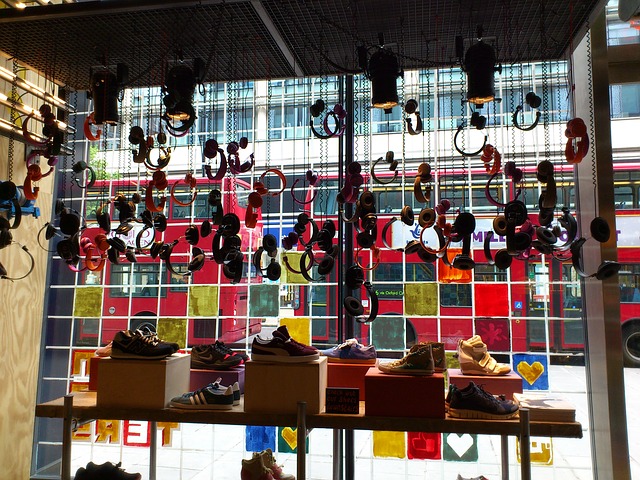Holiday Shopping Can Be a Problem for Disabled Consumers

Before chestnuts roast on the fire and sugarplums dance in the dreams of youngsters, the holiday season elicits visions of crowded parking lots and malls overrun by shoppers while retailers try to keep up with the demand.
The conditions aren't ideal for anyone seeking the perfect gift, but a Rutgers-Camden marketing scholar says they are especially hard for an often overlooked population of consumers: those with disabilities.
"There's music and moving lights and large crowds and it's just difficult to maneuver anywhere," says Carol Kaufman-Scarborough, a professor of marketing at the Rutgers School of Business-Camden. "So, the question becomes, are shoppers with disabilities being excluded because of the retail environment?"
Kaufman-Scarborough, who has been researching consumers with disabilities since 1995, says early consumer research failed to consider customers with mobility problems - such as those forced to navigate busy stores in a wheelchair - as well as people with hearing or sight impairments, and people with cognitive disabilities.
"We have this idealized viewpoint of consumer reality," she says. "But why should consumer research include only people who are not limited by disabilities? The result is excluding a large percentage of the consumer population. It was believed that these are people who don't get out and shop, or that there are too few customers with disabilities to make a difference. It's now swung the other way."
Kaufman-Scarborough recently presented her research on consumers with disabilities during the Vulnerable Consumers Seminar Series held at the University of Strathclyde in Glaskow, Scotland, in November.
The seminar was the fourth in a series of six sponsored by the United Kingdom's Economic and Social Research Council. It aims to promote dialogue and interchange between worldwide researchers, practitioners, and policy makers on the issue of consumer vulnerability and to create a forum to foster methodological good practice and encourage collaborative research projects.
Kaufman-Scarborough summarized almost 20 years of her own research on disabled consumers during a presentation titled "Social Exclusion: A Perspective on Consumers with Disabilities."
"Many of the problems these shoppers face are unintended," she says. "Store design choices can seem like good practice, but in reality, there are problems with aisle width and display height. Overcrowding reduces access, comfort, and mobility."
Online retail has become more popular and it encourages consumers to escape the crowded stores by shopping from home. However, it isn't without hurdles, either. Kaufman-Scarborough says computer screens can be difficult to read for the vision impaired, who also have difficulty typing in information for a CAPTCHA, the test websites use to distinguish between human and automated users.
She says that the Americans with Disabilities Act has been successful in curbing many of these problems and stores are being designed with accessibility for disabled customers, while websites with CAPTCHAs allow users to hear the letters required to type for site access.
"In today's world, you see more deliberate design of retail space," she says. "The ramps are there, the doors are wider and aren't as heavy, and Braille is included on signs. This has become the norm. We're working toward finding more solutions to help vulnerable, disabled consumers, and I think there's more that can be done in the way of employee assistance or store hours for customers with disabilities."
Kaufman-Scarborough's research will be published in a forthcoming book based on the work presented at the Vulnerable Consumers Seminar Series. A Cherry Hill resident, the Rutgers-Camden scholar has published various research articles on vulnerable consumers, consumer homelessness, disability studies, macromarketing, public policy, and consumer time perception and use.
Kaufman-Scarborough earned her bachelor's degree from Duquesne University, her master's degree from Rensselaer Polytechnic Institute in New York, and her doctoral degree from Temple University.
© MD News Daily.
